Top 10 People of the American Revolution
Top 10 People of the American Revolution List
1. George Washington (1789 – 1797)
George Washington was the Commander of the Continental Army and the First President of the United States of America. He was an American politician, military general, statesman and also the founding father. His great-grandfather had emigrated from England to the settler Colony of Virginia, founded by the Virginia Company. His father was a justice of the peace and, by English Common Law, a naturalized subject of the King.
During the American Revolution, Washington commanded the Continental Army. He had five major responsibilities during the war. He designed the overall strategy in cooperation with the Congress. He provided leadership to the troops against the main British forces. He would select and guide the generals during the war.
He also took charge of training the army and providing supplies, from food to tents and everything in between. Lastly, Washington embodied the armed resistance to the Crown and served as a Representative of the Revolution.
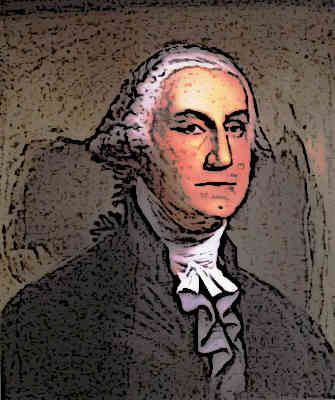
George Washington Founding Father and America President
2. Thomas Jefferson (1743 – 1826)
An American statesman, diplomat, lawyer and architect, Jefferson was one of the Founding Fathers of the United States of America. He served as the third president of the USA. He was the principal author of the Declaration of Independence, motivating American colonies to break away from British Rule.
He represented Virginia in the Continental Congress during the American Revolution and drafted the law for religious freedom as a legislator. He further served as the second Governor of Virginia during the Revolutionary War. After the Revolution was over, he was subsequently awarded the post of Secretary of State to President George Washington.
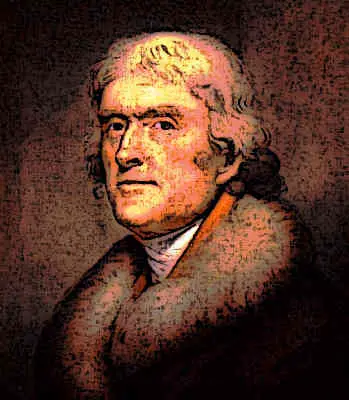
Thomas Jefferson Founding Father 3rd President of America Portrait Painting
3. Alexander Hamilton (1757 – 1804)
Alexander Hamilton was an American statesman and one of the Founding Fathers of the United States of America. He also founded the nation’s financial system, the Federalist Party, along with the very first New York Post newspaper.
During the American Revolutionary War, Hamilton joined the New York volunteer militia company called the Corsicans, later renamed as Hearts of Oak. He studied military history and tactics on his own, and soon became noticeable with the military leadership. He participated in the Battle of Princeton, leading his troops in a successful charge against the British Army. The Battle ended in an American victory.
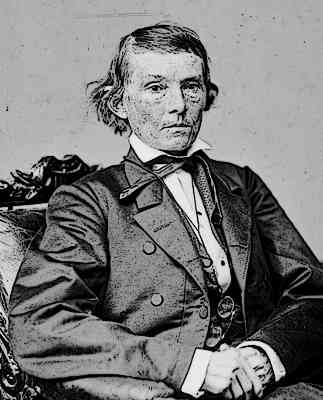
Alexander Hamilton Founding Father and President of United States of America
4. John Adams (1735 – 1826)
John Adams was an American statesman, attorney, writer and diplomat. He was one of the Founding Fathers of the United States, and served as the country’s second president. His great-grandfather migrated to Massachusetts from Essex, England.
He participated in the First Continental Congress and was chosen by the Massachusetts legislature. During the Revolutionary War, he helped push through the plan to raid enemy vessels, later on drafting the first set of resolutions to govern the Navy.
It was Adam’s who selected the Committee of Five, who were charged with drafting the first Declaration of Independence. This was pivotal in creating the sense of idealism behind the new nation.
He also became the head of the Board of War and Ordinance, charged with keeping an accurate record of the officers in the armed forces, along with the disposition of the troops and ammunition.
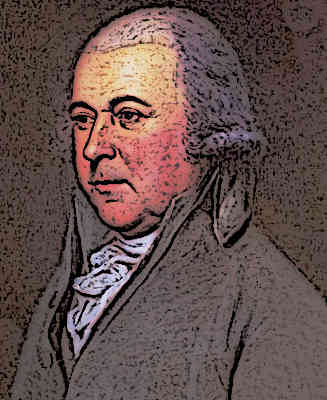
John Adams Founding Father -2nd American president
5. James Madison (1751 – 1836)
James Madison was an American statesman, a lawyer, diplomat and philosopher. He was also one of the Founding Fathers of the United States of America. He is hailed as the ‘Father of the Constitution’ for the pivotal role he played in both drafting and promoting the US Constitution along with the Bill of Rights.
He served as the fifth Secretary of State of the USA.
He believed that the British Parliament had cruelly taxed the colonies in the Americas, and sympathized with those who resisted the order. He was commissioned as Colonel of the Orange County militia in 1775. There he served as his father’s second-in-command until he was elected as a delegate to the Fifth Virginia Convention.
Madison never saw battle during the time of the Revolution, but rose to prominence as an avid political leader during the wartime.
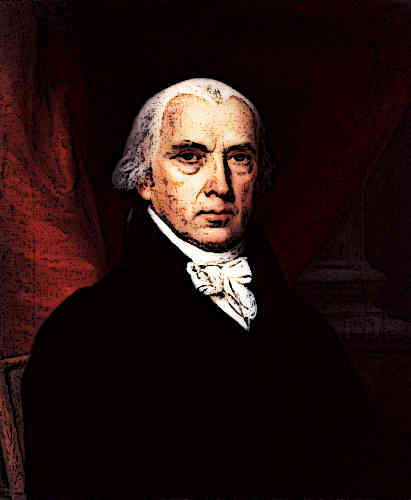
6. Marquis de Lafayette (1757 – 1834)
Known simply as Lafayette, he was a French aristocrat and military officer who commanded American troops during the American Revolution. He was convinced that the cause of the revolutionaries was noble, and traveled from France all the way to New York to seek glory and a name for himself. He was given the rank of major at the mere age of 19-years-old.
Lafayette proved invaluable at the Continental Congress, where he helped mediate (and translate) between the French officers and their English commanders.
He also took part in several battles during the Revolution, including the battles at Albany and Rhodes Island. He was keen on expanding the war effort to other areas of British Colonization, but found little support in his ideas.
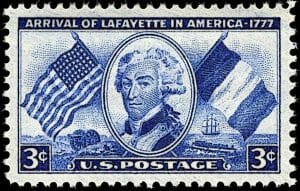
7. Aaron Burr (1756 – 1836)
An American politician and a lawyer, Burr served as the third Vice-President of the United States of America. During the American Revolution, he served as an officer in the Continental Army, following which he became a successful lawyer and politician.
During the Revolution, he participated in Colonel Arnold’s expedition to Quebec, which was an arduous trek of more than 300 miles. He distinguished himself during the Battle of Quebec, where he attempted to recover General Montgomery’s corpse after he had been shot.
After seeing nearly five years of action, Burr had to resign due to ailing health. While he was no longer on active duty in the war, he was occasionally assigned intelligence missions by General Washington.
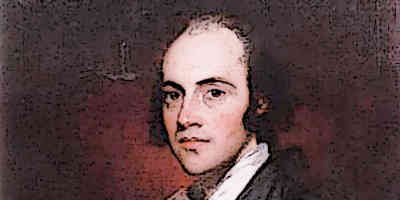
8. James Armistead Lafayette (1760 – 1832)
James Lafayette was an enslaved African American who served under Marquis Lafayette in the Continental Army. He acted as a double agent, and was responsible for reporting the activities of Benedict Arnold (an American military officer) after he had defected to the British.
He would provide the British with false information on the American troops, while disclosing very accurate information to the Americans. He was freed in 1786, according to the Manumission Act of 1782, with the help of William Armistead. He later added the name Lafayette to his own.
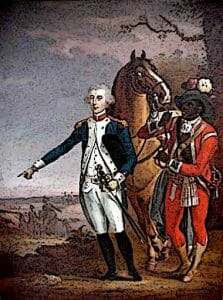
9. Molly Pitcher (1754 – 1832)
Her real name was Mary McCauley. She attended to the soldiers by giving them water, which is how she got her nickname ‘Molly Pitcher’. She spent much of the day carrying water to soldiers on the battlefield, often under heavy fire from the British.

10. John Hancock (1737 – 1793)
An American merchant and statesman, Hancock served as the President of the Second Continental Congress. He was one of the wealthiest merchants before the Revolution.
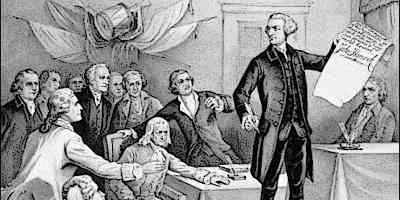
- American Revolution
- 13 Things You Didn’t Know About the American Revolution
- American Revolutionary War
- Boston Massacre: 10 Surprising Facts
- Declaration of Independence
- End of the American Revolution
- Examining the Aftermath of the American Revolution
- Examining the Role of Propaganda in the American Revolution and Its Impact on Public Opinion.
- General Anthony Wayne *Madman of the Revolution
- Global Impact of the American Revolution
- John Hancock
- Secrets of John André
- The American Revolution: An Economic & Political Struggle
- The Boston Massacre – How Many People Died?
- Top 10 Events of the American Revolution
- Top 10 People of the American Revolution
- What Caused the American Revolution